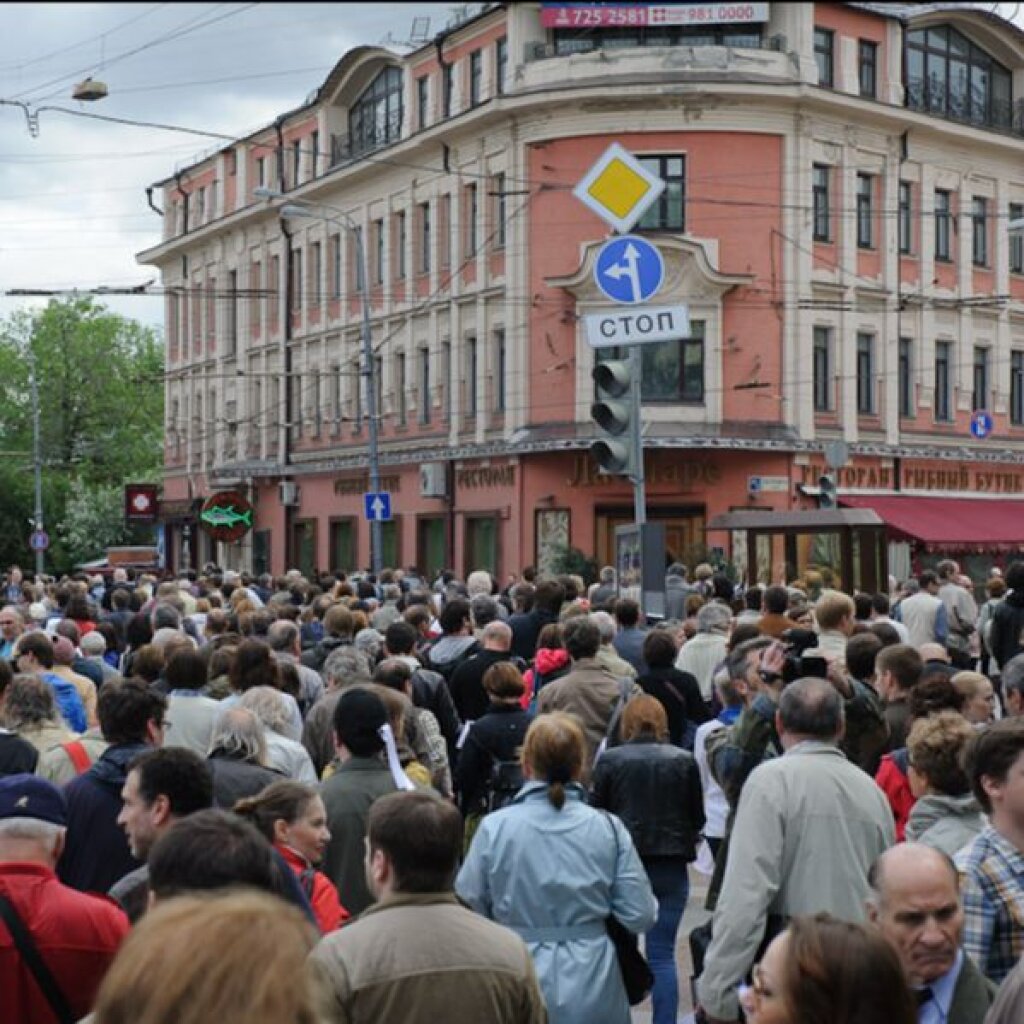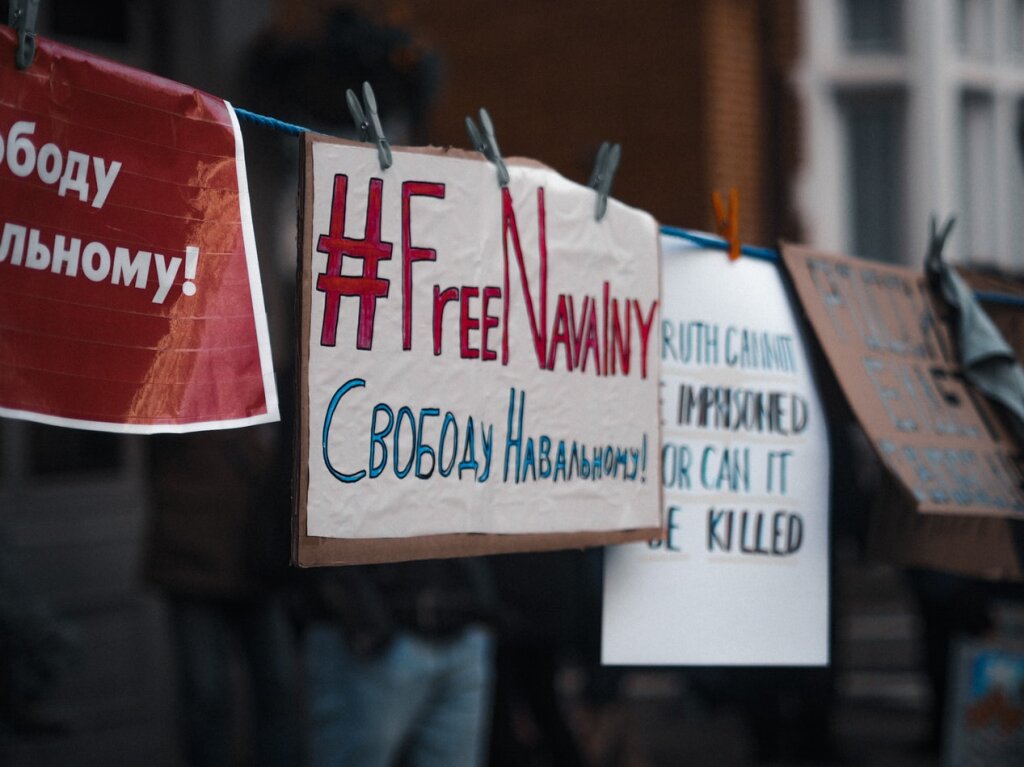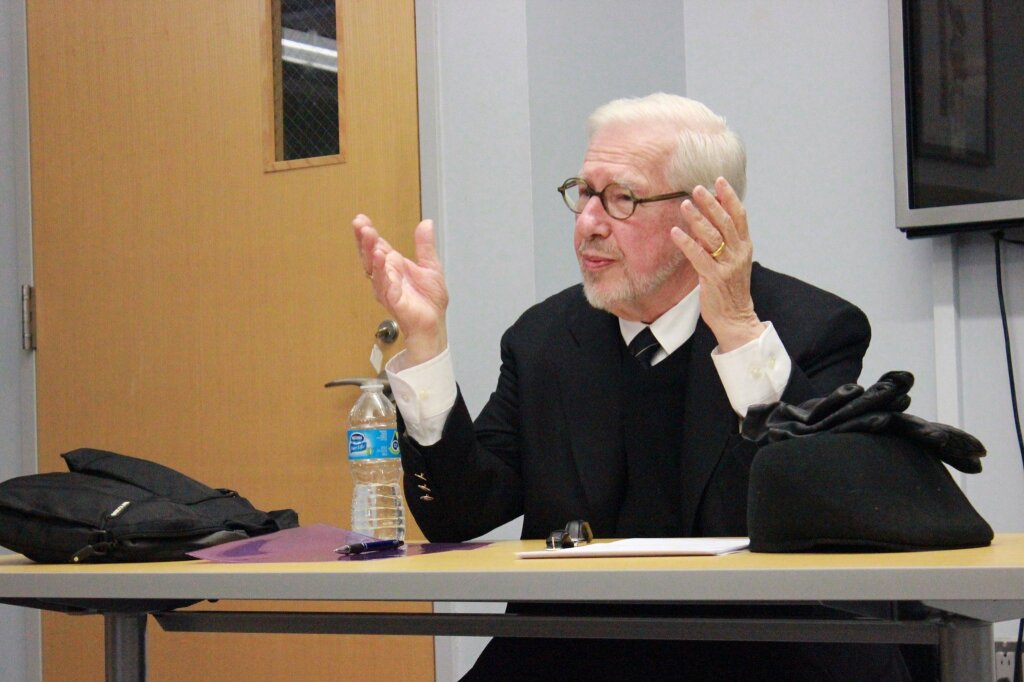On November 8, 2021, the Jordan Center hosted Professor Israel Marques for his talk “Privacy Versus Security in Trying Times: Evidence from Russian Public Opinion.” Marques is an assistant professor in the School of Politics and Governance at the National Research University – Higher School of Economics in Moscow, Russia, and a research fellow at the International Center for the Study of Institutions and Development, an international laboratory at the HSE University. This talk was the first event in the Jordan Center’s new joint lecture series with HSE University. This new series will meet at least twice a semester, switching off monthly between speakers based at HSE in Moscow, and speakers based at NYU and other US institutions. You can watch the recording on YouTube.
Marques began by explaining that his talk was motivated by the perennial question of how a government responds to emergency situations. Emergencies often force the government to react in a way that limits civil liberties and therefore upsets the populace. In the west, there is usually a clear expectation that governments will at least try to prioritize respecting these liberties, but in other places, these liberties are sometimes considered less of a priority.
Marques’ paper was based on the idea that emergency measures are fraught with immediate costs and long-term benefits. Among the populace, there are often concerns that such measures may outlive their immediate justification. There are also concerns that the measures that are most effective are often the most intrusive. Credible fear and credible governments are what help form support for such strict measures. But, as Marques pointed out, the duration of these measures and their extremeness are phenomena that are not well researched and explored across the globe, and he proposes the question: “are all emergencies created equally?”
Marques argued that the willingness of the populace to accept these measures in Russia stems from a combination of the policy itself, the type of emergency, and the duration of the measures, plus context and the amount of fear. According to Marques, people don’t typically question their government about short-term versus long-term actions, and instead tend to respond to emergency situations silently. The degree to which government efforts towards responding to terrorism (and lately, COVID) pique mass interest depends on how much people trust their governments and how much they think their government will overreach. Marques argues that corrupt governments typically have lower approval ratings among the populace, which leads to two hypotheses: firstly, that emergency measures are typically more likely to have support from the populace in concrete emergencies and can retain this support for a longer duration; and secondly, that individuals who are more exposed to these threats are more supportive of these stronger measures.
Marques uses data from a large survey of people in 60 Russian regions. The following questions were asked: imagine that the government proposes (for an unspecified time or temporarily introduce) a new digital system that automatically tracks the location of all Russians (for no specified reason, to prevent terrorist attacks, or to contain a dangerous infectious disease like COVID). To what extent do you agree with the following statement “such a system is necessary even if it violates human rights”? In order to explain variation in people’s agreement with the statement, Marques looked at the impact of fear (getting infected or being caught in a terrorist attack), exposure (mortality or satisfaction with personal safety), and an individual’s trust of regional or national institutions.
Marques finds that people generally see these restrictions poorly, regardless of whether or not it is to protect against a virus like COVID. For terrorism, on the other hand, people are much more supportive of restrictive emergency measures. Interestingly, people became LESS supportive if these restrictions were short-term. Thus, the survey results seem to indicate that Russian people are much more concerned with terrorism than they are with COVID. Marques and his team also found that fear of COVID increases fear of terrorism, and vice versa. They also found that personal exposure to more COVID deaths led to more support for COVID measures, and feeling of security led to more support for terrorism prevention measures. In addition, greater trust in the government led to more support of extreme measures. People who were already distrustful of the government trusted these measures less, and though they still showed some support, though very little.
The variations in Professor Marques’ results are possibly due to several variables, such as whether respondents viewed emergency measures as a violation of rights, or if the time frames presented by emergency measures were viewed as credible and reasonable. Professor Marques attempted to account for this in surveys by adding lines , like “such a system would violate human rights” and “such a system would be temporary.” Most respondents with this question did believe that emergency measures violated human rights. People also responded that geolocation tracking is better at fighting terrorism than fighting COVID, and many suspected that geolocation tracking could open up the possibility for abuses of power.
Overall, perceptions of emergency measures responding to COVID versus terrorism vary widely in Russia . Fear and exposure matter greatly for views on anti-terrorism emergency measures, but very little or not at all for COVID. Trust in the government increases support across the board. The survey results suggest that people believe that emergency restrictions are all violations of human rights, but terrorism prevention is slightly more supported than COVID infection prevention. People believe that time frames are not usually credible, but the justifications somewhat overrule that. Overall, this survey implies that people do not perceive all emergencies as created equally. There is a very complex link between trust, national institutions, credibility, and support.



